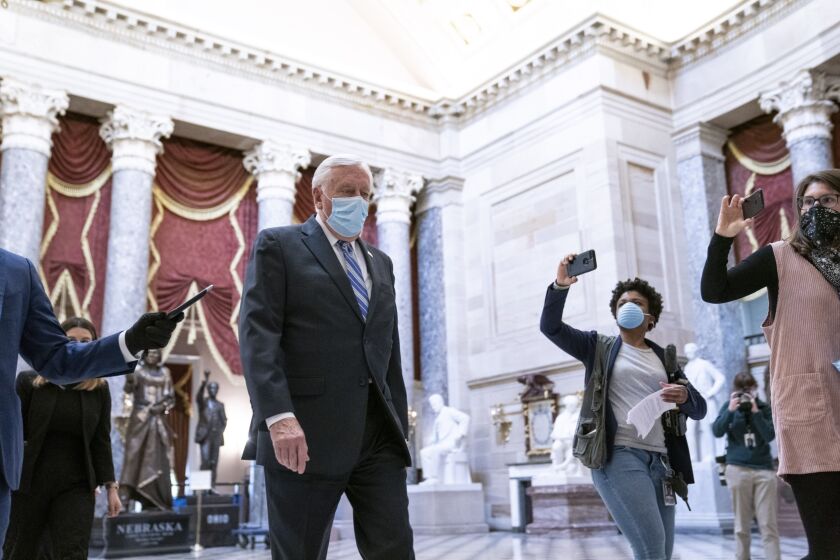House Democrats proposed a $3 trillion virus relief bill Tuesday, combining aid to state and local governments with direct cash payments, tax breaks, expanded unemployment insurance and food stamp spending as well as a list of progressive priorities like funds for voting by mail and the troubled U.S. Postal Service.
A bipartisan group of lawmakers introduced legislation Wednesday to enable small businesses to deduct their expenses even if they have received a loan from the federal government’s Paycheck Protection Protection Program that was later forgiven.
The measure contains tax relief for both businesses and individuals, and other stimulus measures.
Republican staff on the Senate Finance Committee have released a set of answers to frequently asked questions about the stimulus payments.
The Senate voted 96-0 late Wednesday to approve a sweeping $2.2 trillion stimulus package to help the nation emerge from the coronavirus pandemic.
Large retailers like Walmart Inc. and Target Corp., as well as student loan borrowers, are on a long list of potential winners from tax breaks included in a $2 trillion coronavirus relief bill approved by the Senate.
The payments are one of the central provisions of the $2 trillion stimulus package awaiting a Senate vote.
Days of negotiations between the Trump administration and Congress — and fierce lobbying by industries eager for assistance dealing with the coronavirus outbreak — has yielded a rescue package worth more than $2 trillion in spending and tax breaks.
Republicans and Democrats in the Senate have released separate sets of tax proposals aimed at alleviating the effects of the coronavirus pandemic, in contrast to the two bipartisan bills that have been signed into law already.
Tourism represents 17% of Hawaii's economy.











